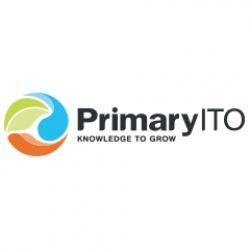
Evaluating a mentoring scheme for trainees in the Primary Industry Training Organisations (ITO)
Status
Completed: 1 July 2014
Project Details
A project to investigate the effectiveness of an informal, voluntary mentoring programme for Primary Industry Training Organisation (ITO) trainees.
Aims:
The project aimed to:
- ascertain if mentoring support for trainees by local community volunteer mentors made a difference to the trainees’ learning experiences and outcomes
- identify the impact of mentoring on successful trainee learning experiences and outcomes
- develop an organisational strategic policy for the mentoring programme
- develop a Mentoring Good Practice model as a formalised process-oriented system for mapping how mentoring support for trainees is provided within the Primary ITO.
Methodology:
The project methodology featured:
- collection of case studies over a five-month period in the central and lower North Island regions
- region selection based on the achievement of successful trainee outcomes including retention, completions and transition to higher levels of study
- involvement of 15 agricultural trainees, 15 volunteer mentors, 10 training advisers, learning support coordinators and a national literacy and numeracy adviser
- a situational analysis
- evaluation of programme documentation
- phone interviews or an online questionnaire with project participants.
Team

Mike Styles
Project Leader
Primary ITO
Dr Lesley Petersen
Petersen Consulting
Marianne Farrell
Primary ITOStatus
Funding
$20,000.00 (excl GST)
Key Findings
The project findings included the need to:
- establish formal processes to identify trainee needs
- develop mentor recruitment processes
- clarify mentor roles and responsibilities
- development mentor support mechanisms
- identify programme benefits and challenges
- identify programme improvement strategies and sustainability.
Key Recommendations
Create a 'mentor attributes' profile for recruiting volunteer mentors | Use the profile tool to benchmark the mentor recruitment process and assist the training advisers to recruit mentors.
Design a 'trainee profile' template | Design the template for training advisers to help them identify and establish mentoring support that meets individual trainee needs.
Improve the training workshop | Improve the introductory one-day training workshop for new mentors by incorporating a range of new resources on topics such as motivation, the mentee’s role, the mentoring partnership cycle and group mentoring skills.
Offer an annual refresher training workshop | Target a new annual workshop at mentors to give them an opportunity to connect with other mentors and share their mentoring experiences, including stories of what works, challenges and solutions.
Develop customised mentoring | Develop mentoring packages for specific trainee groups including Māori, English for Speakers of Other Languages and Pasifika.
Develop a range of mentoring resources | Develop resources such as a mentee profile template, a mentee goal-setting sheet, mentor training questioning techniques, programme evaluation forms, an effective mentor guide.
Use formative evaluation strategies | Incorporate formative evaluation strategies into the mentoring scheme to help participants identify the impact of mentoring interventions and the success of the mentoring partnership.
Develop an evaluation monitoring template | Design an evaluation monitoring template for training advisers to help them track progress, monitor and evaluate outcomes and regularly check-in and have ongoing contact.
Award mentors | Award mentors with the NZQA unit standard 25451: ‘Provide mentoring in an organisation’, as a way of formally acknowledging their contribution.
A report by Mike Styles, Marianne Farrell and Dr Lesley Petersen.
(PDF, 928 KB, 42-pages).
- 1 September 2014